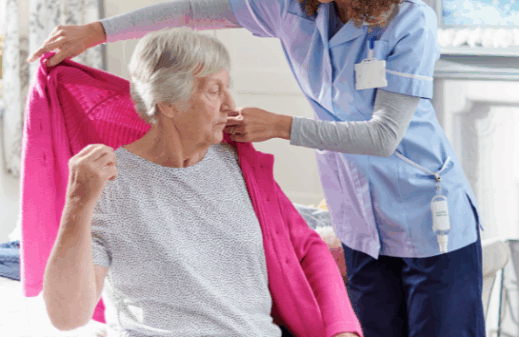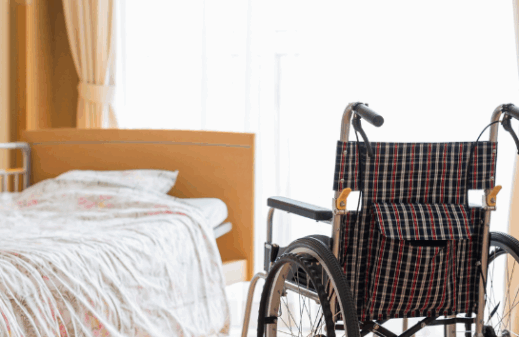Share this article with your residents’ family members or publish it in your blog or newsletter!
Family members know their loved ones better than anyone. They are therefore in a unique position to identify abnormal behaviors. Whether your loved one is living at home or residing at an assisted living facility, watch for signs that something is amiss and communicate any concerns with care providers and healthcare professionals. You can be the best advocate for your elderly loved ones.
Family Members May Notice Changes Others Miss
A sudden change in behavior can be an early indicator of a serious health problem. However, people who are not close to the individual might not realize that anything is wrong. Consider the following scenarios:
- An elderly man who has always been friendly and open-minded starts spewing hateful insults. Caregivers who don’t know him might assume that’s his normal personality, but his daughter knows it’s a sudden and alarming change in behavior.
- An elderly woman who has always been witty and talkative stops communicating clearly. Caregivers who don’t know her might think she’s just quiet, but her nephew knows this is out of character.
- An elderly woman who has always been independent suddenly becomes confused and unsteady on her feet. Caregivers who don’t know her might think this is normal, but her son knows it’s a recent development.
The Problem May Not Be What You Think
When an elderly loved one starts behaving differently, family members may assume that the change is just part of growing older or possibly a sign of dementia. In some cases, this may be true – but not always.
For example, infections often present atypically in the elderly, and it’s easy to mistake the symptoms for signs of dementia. According to WashU Medicine, elderly people with UTIs may experience confusion, falls, agitation, changes in appetite, or incontinence rather than the pain normally associated with UTIs. For people with dementia, a UTI may make dementia symptoms temporarily worse.
A sudden change in behavior or decline in mental or physical ability could also indicate a harmful drug interaction or reaction. According to Johns Hopkins Medicine, people over the age of 60 may take medications for multiple chronic conditions, which puts them at risk for complications and overmedication. Symptoms may include confusion, weakness, dizziness, reduced alertness, increased fall risk, depression, anxiety, excitability, skin rashes, GI problems, and loss of appetite.
What to Watch For
Any changes in behavior, cognition, or physical health deserve attention. Changes that occur suddenly are particularly concerning.
Watch for changes in:
- Cognition, such as confusion or decreased alertness.
- Mood, such as anxiety, depression, agitation, anger, or excitability.
- Appetite, such as loss of appetite.
- Physical health, such as GI problems, skin rashes, or incontinence.
- Strength, such as weakness, unsteadiness, or loss of balance.
How to Communicate with Healthcare Providers or Caregivers
If you notice a change, speak up! It doesn’t matter that you don’t know what’s wrong or even whether something is wrong – that’s for the doctors to figure out. Your job is to alert healthcare professionals to the symptoms and advocate for your loved one.
- Keep an eye on your loved ones. In-person visits tend to be the most informative, but if they’re not possible, you can still monitor your loved ones via regular phone calls. Also consider setting up video calls using Zoom or FaceTime.
- Reach out to caregivers and healthcare professionals. If your loved one is at an assisted living facility, share your concerns with caregivers. Another option is to call your loved one’s doctor.
- If possible, accompany your loved one when going to the doctor or hospital. Bring a list of your questions or concerns as well as information about any medications.
- Be as specific as possible. If something seems wrong but you can’t quite put your finger on what’s changed, share this. However, the more specific you are, the better. Try to explain exactly what behavior has changed and when it changed. It may be helpful to take notes or keep a diary to remember the details.
- Follow up. Monitor your loved one to see whether things improve and continue to advocate for care.
- Consider whether you should be a healthcare proxy. A healthcare proxy (also called a durable power of attorney) is a legal arrangement that gives someone the authority to make medical decisions on behalf of someone who is incapacitated or otherwise unable to advocate for themselves.
Tangram provides insurance for residential care facilities through the Personal Care & Assisted Living Insurance Center (PCALIC).
This article is brought to you by Tangram Insurance Services.




